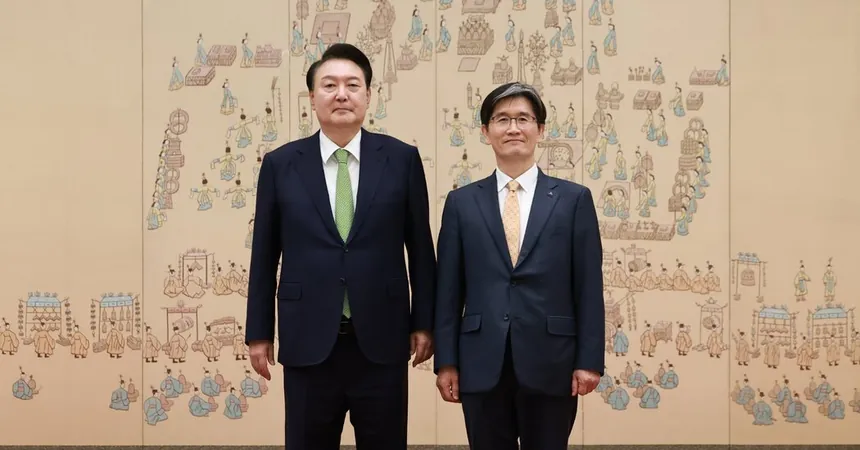
South Korea's President Faces Travel Ban Amid Insurrection Investigation: What’s Really Happening?
2024-12-09
Author: Jia
South Korea finds itself in a state of political turmoil as the Justice Ministry has imposed a travel ban on President Yoon Suk Yeol, pending an investigation into his shocking declaration of martial law last week, which some officials are claiming may constitute an insurrection. This unprecedented move has plunged the country into chaos and sparked nationwide protests demanding Yoon's resignation.
Travel Ban Announcement
On Monday afternoon, the Justice Ministry made the surprising announcement of the travel ban. Chief Prosecutor Oh Dong-woon, responsible for overseeing investigations of high-ranking officials, confirmed that this measure was necessary to conduct search and seizure operations against those believed to have participated in the controversial martial law declaration.
Historical Context
Historically, no sitting president in South Korea has ever faced arrest, although the law permits detention for serious crimes such as insurrection or treason. The current developments raise alarms about the integrity of South Korea's democracy and governmental stability. The nation has now entered what seems to be a leadership vacuum, with mounting pressure on Yoon to step down.
Impeachment Attempts
Over the weekend, opposition lawmakers attempted to initiate impeachment proceedings against Yoon but were unsuccessful, further deepening the uncertainty regarding political leadership. Amidst this turmoil, the Defense Ministry assured the public that military command continues to be under the authority of the president, which raises further questions regarding the chain of command during this crisis.
Accusations of Insurrection
Opposition parties have accused Yoon and his former defense minister, Kim Yong-hyun, of orchestrating an insurrection after armed soldiers were sent into the National Assembly in a bid to control the legislative body. This charge has serious implications — if Yoon is found guilty of insurrection, he could face the death penalty or life imprisonment.
Military Discontent
The political crisis has intensified with revelations of discontent within the military ranks involved in the martial law enforcement. Colonel Kim Hyun-tae, who commanded the special forces unit that stormed the National Assembly, publicly expressed that his troops were manipulated by defense officials. He disclosed that he received direct orders to forcibly oust lawmakers from the assembly chamber, aimed at preventing them from reaching the quorum necessary to revoke the martial law.
Custody of Former Minister
Adding to the escalating situation, Kim Yong-hyun has been taken into custody for questioning, further complicating the already convoluted political landscape. The ruling People's Power Party is now engulfed in controversy, with party chairman Han Dong-hoon purportedly sidelining President Yoon from his duties — a move that opposition figures claim lacks legal justification.
The Road Ahead
As South Korea grapples with this constitutional crisis, questions abound about its democracy's resilience and the potential fallout from this unexpected upheaval. Will Yoon Suk Yeol find a way to maintain his presidency, or is this the beginning of his downfall? Only time will reveal the ultimate outcome of this gripping political saga.
 Brasil (PT)
Brasil (PT)
 Canada (EN)
Canada (EN)
 Chile (ES)
Chile (ES)
 España (ES)
España (ES)
 France (FR)
France (FR)
 Hong Kong (EN)
Hong Kong (EN)
 Italia (IT)
Italia (IT)
 日本 (JA)
日本 (JA)
 Magyarország (HU)
Magyarország (HU)
 Norge (NO)
Norge (NO)
 Polska (PL)
Polska (PL)
 Schweiz (DE)
Schweiz (DE)
 Singapore (EN)
Singapore (EN)
 Sverige (SV)
Sverige (SV)
 Suomi (FI)
Suomi (FI)
 Türkiye (TR)
Türkiye (TR)